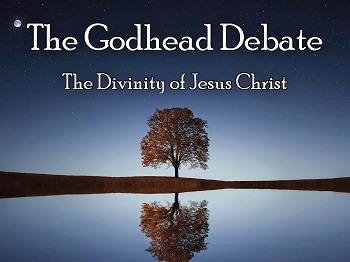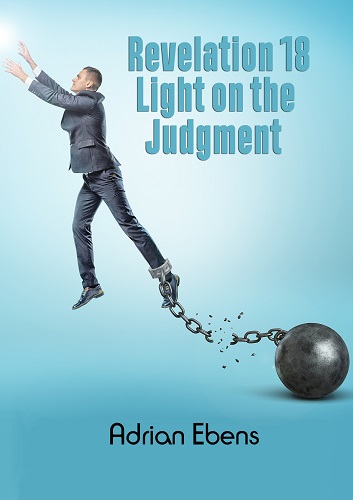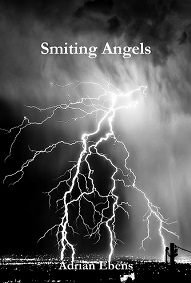The Manhattan Project and the Trinity
I was just browsing through some YouTube videos on the trinity when I noticed a reference to the Manhattan project. This peaked my interested and I was led a History channel presentation on the Manhattan project. At the 5:50 point of this part of the series: http://www.youtube.com/watch?v=eHvUgtVOP64
The narrator mentions the name of the first atomic test. It was named Trinity. The reason given for this is that test leader J. Robert Oppenheimer referred to a poem by John Donne that refers to the paradox of a god that destroys in order to renew. Well, that certainly got my attention and so I went to Wikipedia to see what it had to say on the subject. The article I found simply said Trinity (Nuclear Test) and then opens with these words
Trinity was the code name of the first detonation of a nuclear device. – Wikipedia.
I scrolled down the article to the section on the name and found this information.
The exact origin of the name is unknown, but it is often attributed to laboratory leader J. Robert Oppenheimer as a reference to the poetry of John Donne. In 1962, General Groves wrote to Oppenheimer about the origin of the name, asking if he had chosen it because it was a name common to rivers and peaks in the West and would not attract attention, and elicited this reply:[23]
I did suggest it, but not on that ground... Why I chose the name is not clear, but I know what thoughts were in my mind. There is a poem of John Donne, written just before his death, which I know and love. From it a quotation: "As West and East / In all flatt Maps—and I am one—are one, / So death doth touch the Resurrection."[24][25] That still does not make a Trinity, but in another, better known devotional poem Donne opens, "Batter my heart, three person'd God;—."[26][27]
At this point I had a look at the two poems mentioned in the quote from Oppenheimer. The first poem speaks of oneness through a process of death and resurrection. The second poem is as follows
Batter my heart, three-person'd God ; for you
As yet but knock ; breathe, shine, and seek to mend ;
That I may rise, and stand, o'erthrow me, and bend
Your force, to break, blow, burn, and make me new.
I, like an usurp'd town, to another due,
Labour to admit you, but O, to no end.
Reason, your viceroy in me, me should defend,
But is captived, and proves weak or untrue.
Yet dearly I love you, and would be loved fain,
But am betroth'd unto your enemy ;
Divorce me, untie, or break that knot again,
Take me to you, imprison me, for I,
Except you enthrall me, never shall be free,
Nor ever chaste, except you ravish me.
Donne was a 16th century protestant poet, lawyer and priest who is said to be inventive with metaphor. His description of God somehow connects in the mind of the atom bomb leader through a process of destruction. What is interesting to me personally is my own encounters with the Trinity have been a witnessing of the desolation of my Christian experience and the destruction of my church's doctrinal foundations. On page 111 and 112 of my book Divine Pattern I mention:
Please do not miss this point as it reveals the secret of Seventh-day Adventism’s long flowing hair and is the secret of her power. The reality of the Heavenly Sanctuary, the reality of the mediatorial work of Jesus, the reality of His receiving a kingdom all depend on a clear understanding of the distinct personalities of Father and Son. Any shift towards a metaphorical understanding because of a Trinitarian mindset and this whole system collapses. It appears as a mirage on the dusty walls of scholars’ minds serving only as an illustration but is not real.
The metaphorical oneness described by Donne’s poem that describes the attributes of force to batter his heart gives inspiration to a bomb that would release such forces as to batter many hearts in an instant and bring a nation to ruin under its heel. Is this connected to the god mentioned in Daniel 11?
Dan 11:38 But in his estate shall he honour the God of forces: and a god whom his fathers knew not shall he honour with gold, and silver, and with precious stones, and pleasant things.
The reasons for J. Robert Oppenheimer’s use of the word Trinity may be an attempt soothe the conscience of a crime against humanity with divine activity or it may simply be a thought of sarcasm towards the god of his childhood that he saw as a destroyer, we cannot tell. But the linking of the Trinity to the first atom bomb as a destroyer that renews has significance for Adventists.
Not long after the Atom Bombs were dropped on Japan, leaders in the Adventist Church send a shock wave through the Adventist church with the release of Questions on Doctrine. Within 25 years of it’s release, the seeds of this document tore away the foundation of Adventism and prepared the way for renewal. It paved the way for books of a new order and a new way of doing things.
The metaphorical understanding of Father and Son as part of a one God unity (whether substance or purpose alone – it matters not) has desolated and battered the heart of Adventism. The doctrinal Fission of our Sanctuary doctrine has prepared the hearts of our people to bow in submission to the god of forces.
May the Father and His Son save us from this atomic god that destroys in order to renew, a god that finds a strange but fitting connection to the first atomic test. The Trinity is a destroying God while the Father and His Son are a saving God. Choose you this day whom you will serve.





